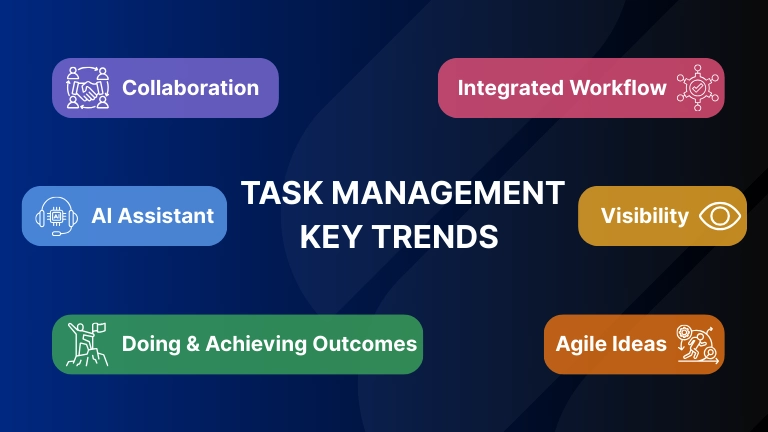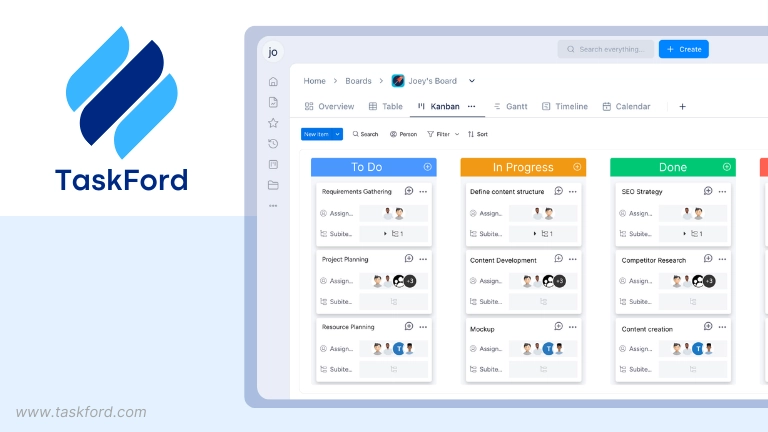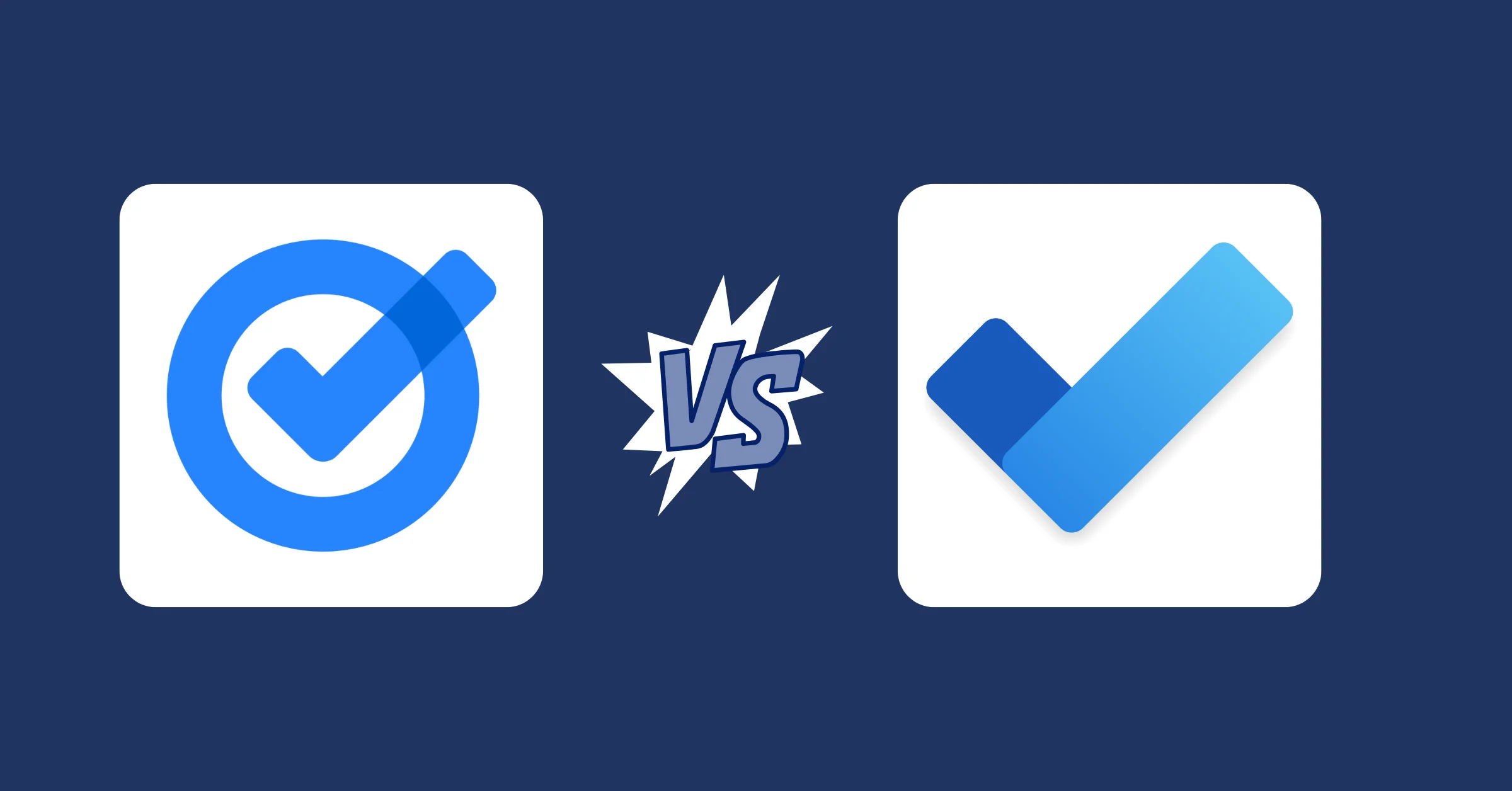From Delegation to Collaboration: Key Trends in Task Management for Managers (2025)
Explore 2025 trends in task management for managers: moving from delegation to collaboration, integrated tools, AI assist, and hybrid team visibility.
Let's talk about managing tasks as a manager. It sounds simple, right? Just tell people what to do? If only! The way we approach task management for managers has shifted quite a bit, especially with remote and hybrid teams becoming the norm and everything moving at lightning speed in 2025. It’s less about just handing out assignments now and more about, well, orchestrating the whole performance.
Remember the old days? Maybe you had a giant whiteboard, or perhaps just relied on email chains and sheer force of will to keep track of who was doing what. It often felt like you, the manager, were the central bottleneck, the one everyone had to report back to, the keeper of all the task knowledge. Sound familiar? While that top-down approach might have worked sometimes, it often led to delays, confusion, and frankly, teams that didn't feel super involved. Effective task management for managers today looks quite different.
The landscape has changed. We're seeing trends that push towards more collaboration, smarter tools, and a focus that goes beyond just checking boxes. So, what’s new? What are the key shifts influencing task management for managers right now? Let's explore some of the big ones shaping how we get work done together. Understanding these trends is key to leading teams effectively and keeping projects on track without pulling your hair out. Good task management for managers is evolving, and it's worth paying attention.
Key Takeaways
- Collaboration Over Command: The biggest trend? Shifting from purely top-down delegation to more collaborative task definition, planning, and problem-solving within the team.
- Integrated Tool Power: Managers are moving away from juggling dozens of single-purpose apps towards integrated platforms where tasks, communication, and documents live together. This is central to modern task management for managers.
- AI as a Helping Hand: Artificial Intelligence is starting to assist managers by automating routine tasks, suggesting priorities, and summarizing progress – acting as a co-pilot.
- Visibility is Vital (Especially Hybrid): Real-time, shared visibility into task status, workload, and potential roadblocks is non-negotiable for managing distributed teams effectively. Effective task management for managers requires this transparency.
- Focus on the 'Why': Connecting individual tasks to larger team or project goals (like OKRs) is increasingly important for motivation and ensuring effort aligns with outcomes.
- Agile Thinking Spreads: Principles like flexibility, iteration, and regular check-ins, borrowed from Agile, are influencing task management for managers across various industries.
Remember When 'Managing Tasks' Just Meant Doling Them Out?
Think back – maybe not too far back for some of us! The traditional model of task management for managers often looked like this: the manager receives project requirements, breaks them down (maybe), assigns pieces to individual team members, and then checks in periodically (or constantly?) for status updates. You were the hub, the controller.

And hey, sometimes that worked okay, especially for straightforward, predictable projects. But it had its downsides, didn't it?
- You became the bottleneck – everything had to flow through you.
- Team members often lacked context or a sense of ownership over the bigger picture.
- It didn't adapt well when things inevitably changed mid-project.
- Communication was often siloed between you and individual team members.
- Honestly? It could feel a bit like micromanaging sometimes, which nobody really enjoys.
This old style of task management for managers often struggled with complexity, speed, and the need for team engagement that’s so critical today. Something had to give.
Trend #1: It's a Team Sport Now (Hello, Collaboration!)
This is probably the biggest shift we're seeing in task management for managers. It's moving away from that rigid, top-down delegation model towards something much more collaborative. Think less like a lone orchestra conductor dictating every note, and more like facilitating a really good jazz ensemble – providing the theme and structure, but allowing room for improvisation and mutual support.
What does this look like in practice?
- Shared Planning: Instead of the manager defining every single task in isolation, teams are often involved in breaking down work, estimating effort, and even suggesting task sequences during project planning.
- Open Communication: Task discussions, questions, and updates happen within the context of the task itself, often using comments or integrated chat features in shared tools (think platforms like Asana or Trello where task cards become mini-conversation hubs). Everyone involved can see the dialogue, not just the manager.
- Collective Problem-Solving: When roadblocks appear, the team often swarms the problem together, rather than waiting for the manager to provide the solution.
Why the change? Because it works better! Collaboration leads to better ideas, faster problem-solving, increased buy-in and ownership from the team, and makes the whole operation more resilient to change. For this style of task management for managers, your role morphs into being a facilitator, a coach, someone who removes obstacles and ensures clarity, rather than just the task-assigner-in-chief.
Trend #2: Ditching the Dozen Apps (The Integrated Workflow)
Remember the days of having one tool for tasks, another for chat, another for documents, maybe another for timelines…? Jumping between all those tabs was exhausting! And trying to piece together the full picture of a project? Forget about it. This context switching is a major productivity killer. Good task management for managers shouldn't require being an expert app juggler.
The trend now is strongly towards integration. Managers and teams want platforms where work actually happens in one place. We're seeing the rise of "Work Operating Systems" or comprehensive project management platforms (like ClickUp or Monday.com, for instance) that aim to bring everything together.
Imagine:
- Your task list lives alongside the relevant documents.
- Team conversations about a task happen on the task card.
- Task deadlines automatically populate a shared team calendar or timeline.
- Progress updates on tasks might even feed into resource planning views.
This integration makes life so much easier. As a manager, you get a much clearer, centralized view of everything that's going on without having to manually stitch information together from five different sources. It streamlines communication, reduces errors, and just makes the whole process of task management for managers feel less fragmented and chaotic. This unified approach is a huge trend impacting task management for managers.
Trend #3: Your AI Assistant is Clocking In
You knew AI was going to show up here, right? While the previous article tackled the "will AI replace project managers?" question (spoiler: probably not the role, but definitely tasks), AI is undeniably becoming a factor in task management for managers. But think "helpful assistant," not "robot overlord."
Here’s how AI is starting to lend a hand in 2025:
- Smart Prioritization: AI might analyze deadlines, dependencies, and project goals to suggest which tasks you or your team should focus on next.
- Automated Task Creation: Imagine AI listening in on a meeting (with permission, of course!) and automatically generating task suggestions based on action items discussed. Or turning an email request into a task card. Pretty handy.
- Progress Summaries: Instead of you manually compiling updates, AI could potentially summarize the status of key tasks or project phases for quicker reporting.
- Assignment Suggestions: Based on skills profiles and current workload data (perhaps pulled from resource planning software features), AI might suggest the best person to assign a new task to.
This isn't about AI taking over decision-making. It's about providing managers with better data, automating routine parts of task management for managers, and freeing up your brainpower for more strategic work. It’s early days for some of this, but the potential for AI to streamline task management for managers is definitely a major trend to watch.
Trend #4: Visibility Isn't Optional (Especially with Hybrid Teams)
If you're managing a team where some folks are in the office, some are remote, and maybe some are in different cities or countries altogether, you know that visibility is everything. Out of sight cannot mean out of mind when it comes to workload and progress. This makes effective task management for managers even more critical in hybrid setups.
Teams need a shared, real-time source of truth for tasks. This means:
- Visual Task Boards: Kanban boards or similar visual tools where everyone can see tasks moving through different stages (To Do, In Progress, Done).
- Clear Assignments: Knowing instantly who owns which task.
- Status Updates: Easy ways for team members to update task status quickly and accurately.
- Roadblock Highlighting: A clear way to flag when a task is stuck or needs attention.
Modern task management for managers relies heavily on these visual, accessible platforms. They provide the transparency needed to keep everyone coordinated, identify issues early, and ensure work keeps flowing smoothly, regardless of where people are physically located. You just can't manage a hybrid team effectively using invisible task lists hidden away in individual documents. That shared view provided by good task management tools is essential.
Trend #5: It's Not Just Doing Tasks, It's Achieving Outcomes
There’s a subtle but important shift happening in how we think about tasks. It's moving beyond just checking off items on a list towards understanding why those tasks matter. Effective task management for managers increasingly involves linking day-to-day work to larger strategic goals.
This means:
- Connecting Tasks to Goals: Modern tools often allow you to link tasks directly to project milestones, team objectives (like OKRs), or even company-wide strategic initiatives. This might fall under portfolio management features in some tools.
- Communicating the 'Why': As a manager, ensuring your team understands how their specific tasks contribute to the bigger picture is crucial for motivation and alignment.
- Focusing on Impact: Shifting performance conversations slightly from "Did you complete these 10 tasks?" to "How did the work we did move us closer to our key result?"
When the team sees the connection between their individual effort and the overall mission, they're generally more engaged and make better priority calls independently. Good task management for managers fosters this sense of purpose. It helps ensure everyone is pulling in the same direction, not just busy being busy.
Trend #6: Agile Ideas are Spreading Like Wildfire
Even if you're not running a software development team using formal Scrum, you've likely noticed Agile concepts influencing how work gets managed everywhere. Ideas like:
- Iterative Work: Breaking work into smaller cycles (like sprints) with defined deliverables.
- Flexibility & Adaptability: Being able to adjust plans based on feedback or changing conditions.
- Regular Check-ins: Short, focused meetings (like daily stand-ups) to sync up and identify blockers.
- Visual Management: Using boards (like Kanban) to make work visible.
These principles are bleeding into general task management for managers because they promote responsiveness and continuous improvement. Many task management tools now incorporate features that support these agile ways of working, like flexible board views, backlog management, and easy re-prioritization. It’s about being less rigid and more adaptable in how tasks are planned and executed.

Putting it Together: What This Means for Your Management Style
So, seeing all these trends, what's the takeaway for you, the manager on the ground? This evolution in task management for managers suggests a shift in your own approach might be beneficial:
- Be a Facilitator, Not Just a Director: Encourage team input, guide collaborative sessions, and focus on removing obstacles rather than just assigning work.
- Communicate Clearly & Often: Provide context (the 'why'), ensure everyone understands priorities, and foster open channels for task-related discussions.
- Choose Tools Wisely: Select task management tools that genuinely support collaboration, integration, and the visibility your team needs. Don't just pick the flashiest one; pick the one that fits your workflow. Proper time management often starts with the right tool.
- Build Trust & Safety: For collaboration to thrive, team members need to feel safe raising concerns, asking questions, or admitting a task is blocked. Foster that environment. (This might seem like a small digression, but honestly, it underpins so much of effective teamwork).
- Connect the Dots: Help your team see how their tasks impact project timelines, budget management , and overall success. Show them how effective task management benefits everyone.
It’s about creating an environment where the team can do its best work, supported by smart processes and enabling technology. That's the core of modern task management for managers.
TaskFord's Approach to Modern Task Management

Here at TaskFord, we're building our platform with these exact trends in mind. We recognize that effective task management for managers today is deeply intertwined with overall project management, communication, and resource awareness.
Our vision is to create an integrated workspace where tasks aren't isolated items on a list. We're designing TaskFord so that task management flows naturally into resource planning, time tracking (making timesheet generation simpler), and even cost management. We aim to provide the visibility managers need, especially for hybrid teams, and foster collaboration by keeping task context and communication linked together. We're also keenly exploring how smart features, potentially leveraging AI, can assist with task prioritization and progress monitoring, making task management for managers less burdensome. The goal is a seamless, intuitive platform that supports the collaborative and outcome-focused way modern teams work.
Conclusion: The Evolving Art of Getting Things Done (Together)
The world of task management for managers has definitely moved beyond simply assigning work and checking boxes. The trends in 2025 point clearly towards more collaboration, smarter integration, AI assistance, and a stronger focus on outcomes and team enablement. It demands a shift from being just a task delegator to becoming a true facilitator of team productivity.
Adapting to these trends – embracing collaborative approaches, leveraging integrated tools, and focusing on clear communication and visibility – isn't just about staying current. It’s about building more resilient, engaged, and effective teams capable of tackling complex projects in today's dynamic environment. Mastering this evolving art of task management for managers is key to navigating the future of work successfully.
Ready for Task Management Built for Modern Teams?
Want a platform designed around collaboration, integration, and visibility? See how TaskFord plans to simplify task management for managers and their teams.
Making work simpler,
smarter, and more connected
Join our waitlist and be notified first.

Related Blog
Subscribe for Expert Tips
Unlock expert insights and stay ahead with TaskFord. Sign up now to receive valuable tips, strategies, and updates directly in your inbox.






